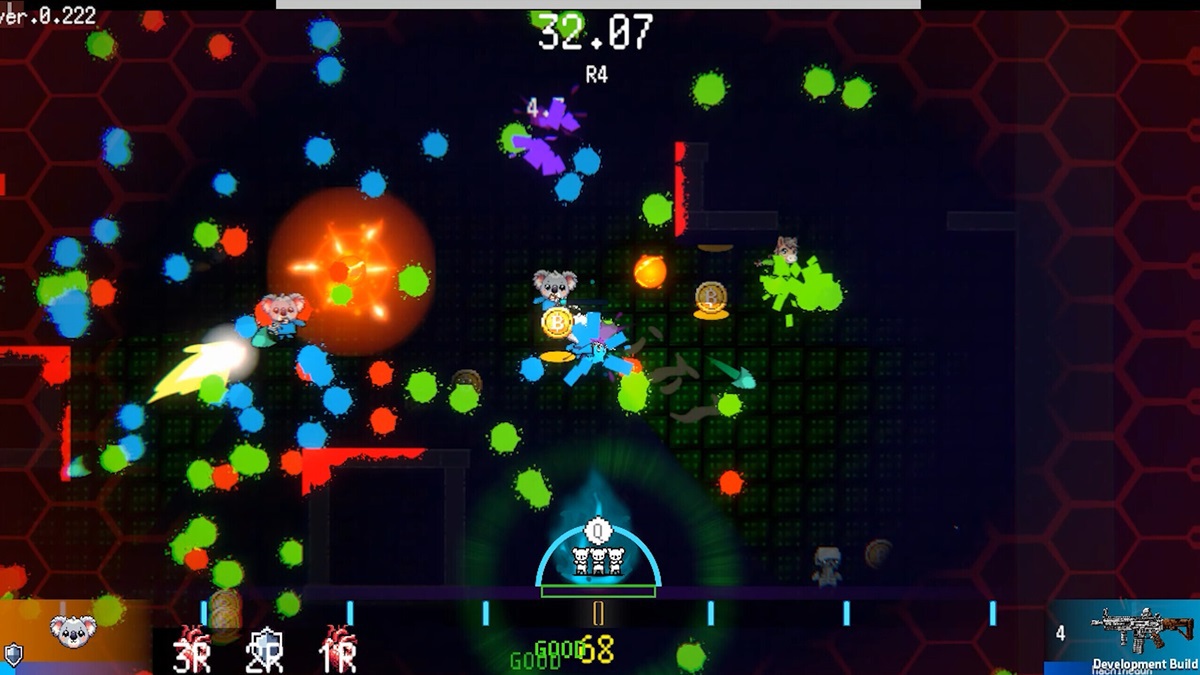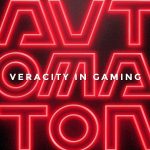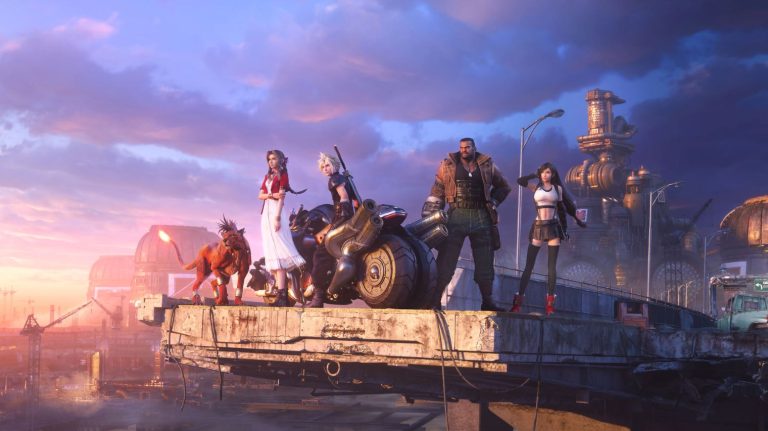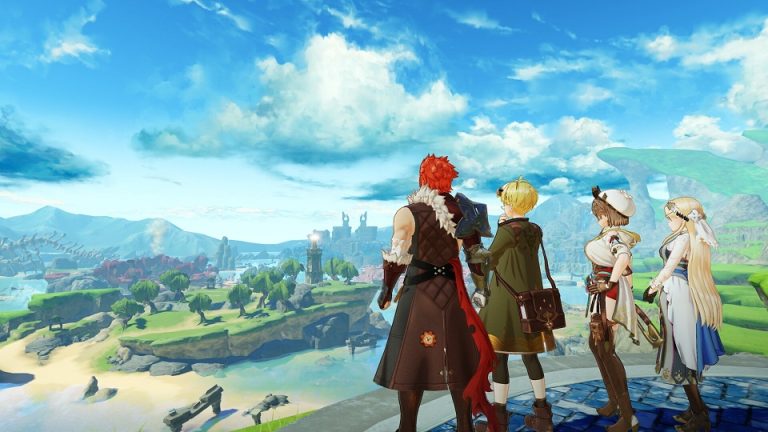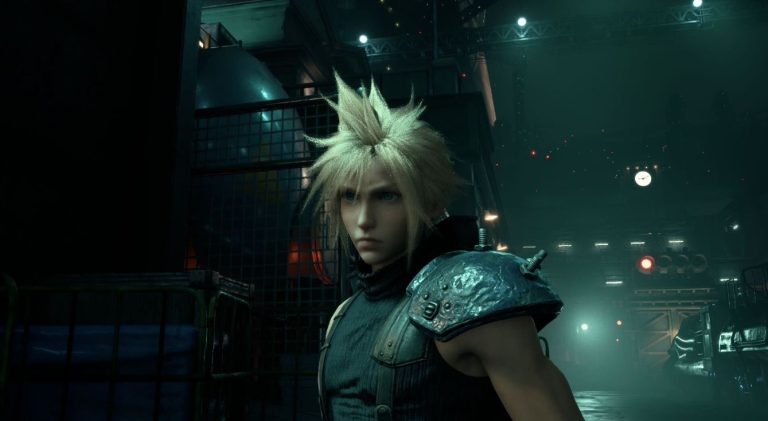GEAR=D released the competitive online shooting game DB²: Disco Boogie of the Dead Beats (hereinafter referred to as DB²) in Early Access on April 25 for the PC (Steam). The developer, GEAR=D, is an indie game label owned by 1st-Impact.
DB²: Disco Boogie of the Dead Beats is a 2D top-down competitive online shooter set in a mysterious, zombie-infested disco located underneath a graveyard. The objective is to earn a required amount of “chips,” which can be done by blasting the zombies with an array of weapons or defeating other players. DB² also includes a rhythm game mechanic – by pressing the Space key in time with the music bar on the bottom of the screen, you can earn extra chips. The twin-stick shooter incorporates zombie shooting action with disco rhythm game elements.
We interviewed Kunihiro Sasakawa, the creator of GEAR=D’s debut title DB², to find out more about his background as a creator, GEAR=D’s plans as a studio and the game itself.
GEAR=D – an indie label founded by a veteran creator
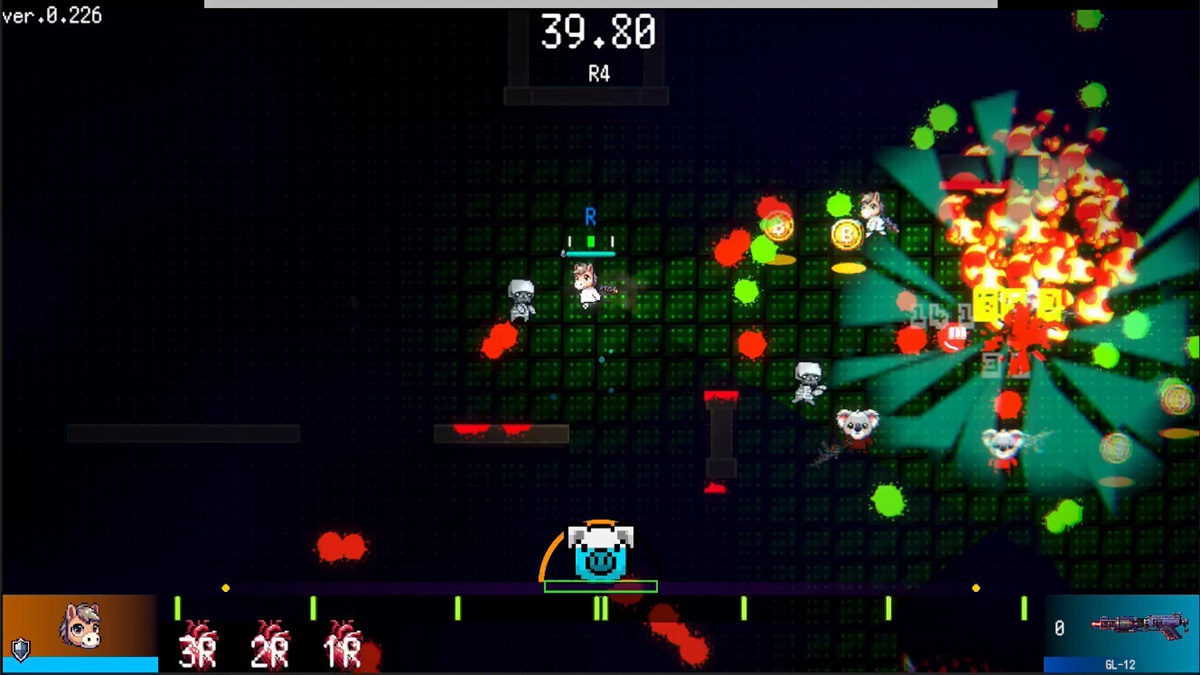
──To start things off, could you please introduce yourself.
Sasakawa:
I’ve been active in the game industry since I was around 20 years old. I spent the first few years of my career at Capcom. At the time, I oversaw PC game localization and assisted Goichi Suda in his console projects.
──Killer7, I presume?
Sasakawa:
Exactly, I’m surprised that you know. After that, I left Capcom and became a freelancer. As a freelancer, I did work for Square Enix, which got me involved in the development of “Dragon Quest & Final Fantasy in Itadaki Street Portable” and the arcade game “Lord of Vermillion.” Later on, I took to studying Unity and started out as an engineer. I’ve been involved in numerous titles since then.
──So you do both project planning and programming. Moving along, GEAR=D is a new indie game brand established by 1st-Impact, but I’d like to hear more about it. What is the scale of GEAR=D’s development team? Also, what is the label’s concept?
Sasakawa:
I’ve always adored video games, and I’ve always enjoyed both making them and playing them. However, after working on many cancelled projects, I reached the point where ideas for new games started accumulating in my mind with no way for them to come out. I’ve always wanted to put these ideas to the test and get my games out into the world.
In this respect, Steam appealed to me as an environment I could immediately try out and get involved in. I looked for people and collaborators, created a team and formed the unified label GEAR=D. Everything started from there.
──What kind of games do you like to play?
Sasakawa:
In terms of genre, I think I’ve spent the most time playing fighting games. I’ve been playing the Tekken series ever since I was in high school, and even now with the latest release, I got super hyped up to finally use my arcade stick.
Also, it’s a completely different genre, but I’ve spent a good chunk of time playing the Age of Empires series. As for developers, I love almost all of Blizzard’s games, including StarCraft and Diablo. Also, while I was at Capcom, I was in charge of the Warcraft series’ localization, and I thoroughly enjoyed playing it as well. I really love the FPS Aliens vs. Predator too.
I have a habit of replaying the same games, so I’ve been making a conscious effort to play a wider variety of video games recently.
──You seem like both a passionate gamer and a veteran developer. So, GEAR=D is a means of getting your ideas out there?
Sasakawa:
Yes, I’m the one who started things after all.
DB² – a melting pot of game mechanics
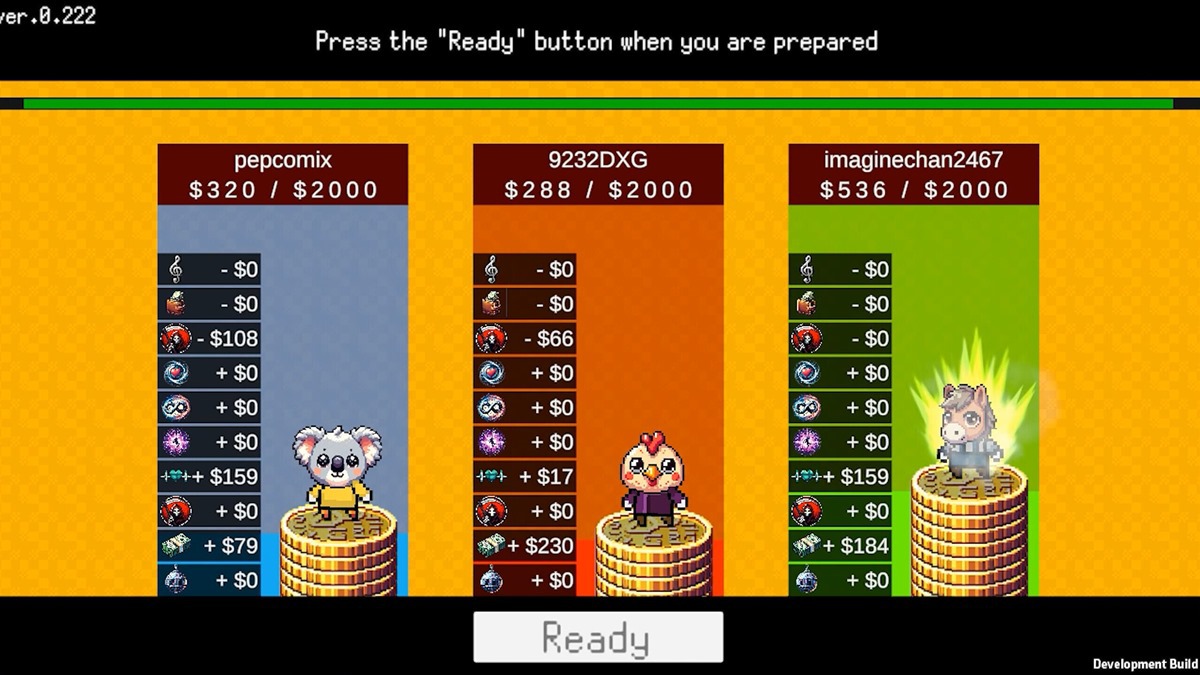
──Moving on, you just launched DB²’s Early Access the other day, but what kind of game is it?
Sasakawa:
DB² is a twin-stick shooter at its core, but with a variety of mechanics built on top. Players shoot at each other in a 2D top-down format. However, while the shooting goes on, QTEs occur, and there’s also rhythm game inspired gameplay, such as hitting notes and striking poses in time with the music.
──I feel like although there are plenty of twin-stick shooters on Steam, few of them are from Japan. What made you go for this genre?
Sasakawa:
One of the games that inspired DB² is Geometry Wars. When I first played Geometry Wars, I was extremely impressed by how infinitely playable it felt. The structure of the game is simple, with enemies continuously coming at you in a sectioned off space, but it’s a game that was born through the evolution of hardware, as it can only be played with 2 analogue sticks. I always wanted to create a game that makes good use of intuitive controls in this way.
──What sets DB² apart from other twin-stick shooters on Steam?
Sasakawa:
I think that a twin-stick shooter with real-time online competition is quite rare.
Classic twin-stick shooters may not work that well as competitive games, but I think that the twist we put on DB² makes it suit the genre. Also, DB² is basically being developed only by me and one young programmer. As it wasn’t really feasible to create a bunch of stages with a two-man team, we went with the approach of enriching the game by implementing various systems.
──So you focused your know-how into finding a way to increase playability and entertainment value despite having a small team. By the way, when I played DB², I really enjoyed how varied it was, but I also felt like it made my hands quite busy. Is this something you get used to as you play?
Sasakawa:
You’ll get used to it (laughs). After playing for a while, you get accustomed to everything. On the other hand, DB² is the kind of game where you’re bound to make mistakes even after you’ve got the hang of things, so it’s not a game where you should aim for perfection. DB²’s balancing takes a certain amount of mistakes into consideration, so it should be equally enjoyable for both veteran players and novices.
──Have you previously been involved in or played games that deal with a lot of information and inputs like DB² does?
Sasakawa:
I think the most hectic game I’ve ever played is Super Smash Bros. Tekken is up there too.
──I think DB² is more hectic than both of those games as it requires different categories of inputs, like shooting and following the rhythm.
Sasakawa:
DB²’s inputs make you use different parts of your brain, which is why it feels busy. Our idea while developing the game was to purposely keep objectives and on-screen information scattered, as opposed to grouping things.
──I did kind of feel like it was placing a load on my brain. As the developer, do you envision people playing DB² in a carefree way or in a hardcore way?
Sasakawa:
As I touched on earlier, I want players to enjoy the game while feeling free to make mistakes – to have fun succeeding and to have fun failing. For example, we purposely made DB²’s rhythm game system quite lenient, so there’s no need to be too concerned about hitting notes at the right timing. At the same time, it’s just the right amount of strictness for players to remain conscious of following the rhythm.
──So, the aim is to get players to enjoy performing various inputs, rather than doing everything perfectly?
Sasakawa:
That’s right, I want people to think of their mistakes as part of the fun.
What lies at the core of DB²
── DB² is like a melting pot of various mechanics, but can you give us an overview of everything the game offers?
Sasakawa:
Firstly, as a twin-stick shooter, one of the game’s elements is shooting enemies and dodging bullets. Then, there’s also the element of actively searching for the enemy: As light shines only in the direction your character’s gun is aimed at, you can only get information from one direction at a time. However, opponents and NPCs will come at you from all directions, so you need to keep checking 360 degrees around you. As mentioned previously, there’s also the rhythm game element of hitting notes.
Furthermore, as the game is set in a disco, there will be one spot on the entire map that is lit up by the spotlight of a Mirror Ball, and this is where the highest number of chips can be earned. Therefore, the spotlight attracts concentrations of players, becoming an intense battlefield. When you enter the spotlight, you need to perform QTEs and remain vigilant against enemy attacks.
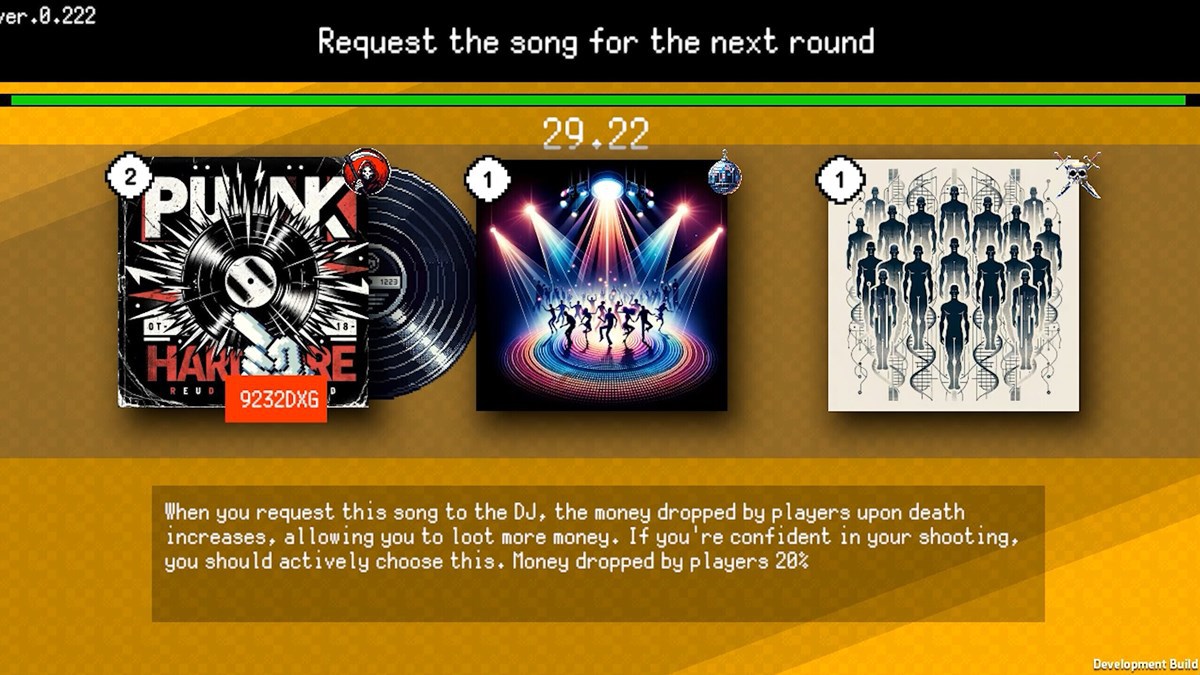
There’s also an important element of DB² called Time Paradox. DB² is a round-based game, and after each round, a time-space distortion causes the players’ characters from the past round to join the new one (and perform the same movements all over again). If you succeed in saving your past self from being defeated in the same way they were in the past round, they will stick behind your present self and help you. As the rounds progress, the number of player characters increases from 4 to 8, then to 16, and so on. Basically, the further the game progresses, the more excitement there is.
The player who manages to collect the most chips while all this happens is the winner. I would love to see players collect chips in their preferred way, whether it’s focusing on vanquishing zombies, defeating other players or hitting notes.
──Among everything you’ve described, what would you identify as DB²’s core mechanic?
Sasakawa:
We’ve tried to kind of purposely “blur” the main focus of the game, but I think it’s the player’s character and shooting/dodging enemy bullets – in other words, the twin-stick shooter elements, that make up DB²’s core.
──Which aspect of DB² do you think reflects you as a creator the most?
Sasakawa:
I think it’s the fact that it didn’t break down despite all the mechanics added to it.
──I see, it’s a game made possible thanks to the varied experience you’ve accumulated. DB² was released in Early Access, but is there anything you’re planning to add to it in the future?
Sasakawa:
At the moment, DB² features four playable characters, but we’re planning to add new ones. This will come after we’re done balancing out the existing ones, however. Also, we have only one map at this point, but I am still not sure if we’ve made the perfect layout for it. I think there are many potential elements that could make the game more interesting, so I’d like to start by having people play the game and hearing what they have to say.
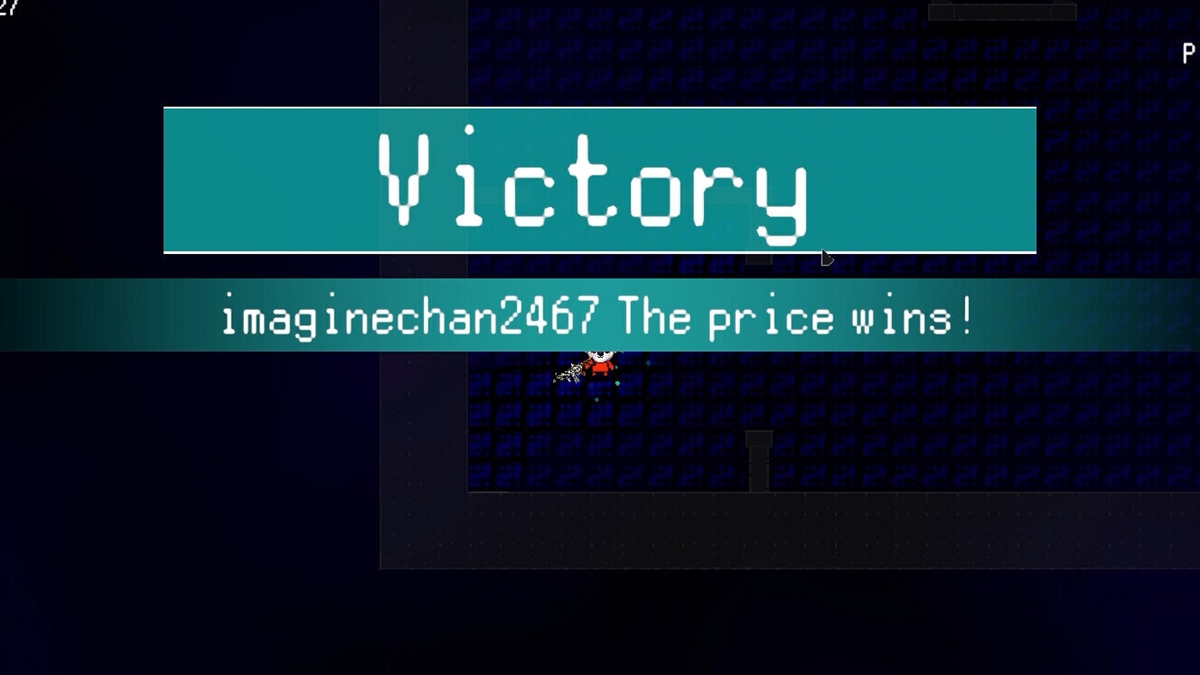
──Do you have a message for players outside of Japan?
Sasakawa:
DB², GEAR=D’s debut title, just released in Early Access, but we are actually already getting started on our next game. We’re currently in the process of fleshing out our ideas. DB² is our starting point, but please keep an eye out for our future titles!
──Thank you for your time.
GEAR=D is new to the scene, but at its helm is a veteran developer who’s amassed varied experience in the game industry. We’re looking forward to DB² and the label’s future projects.
DB²: Disco Boogie of the Dead Beats is currently available in Early Access for the PC (Steam).

